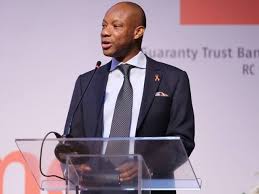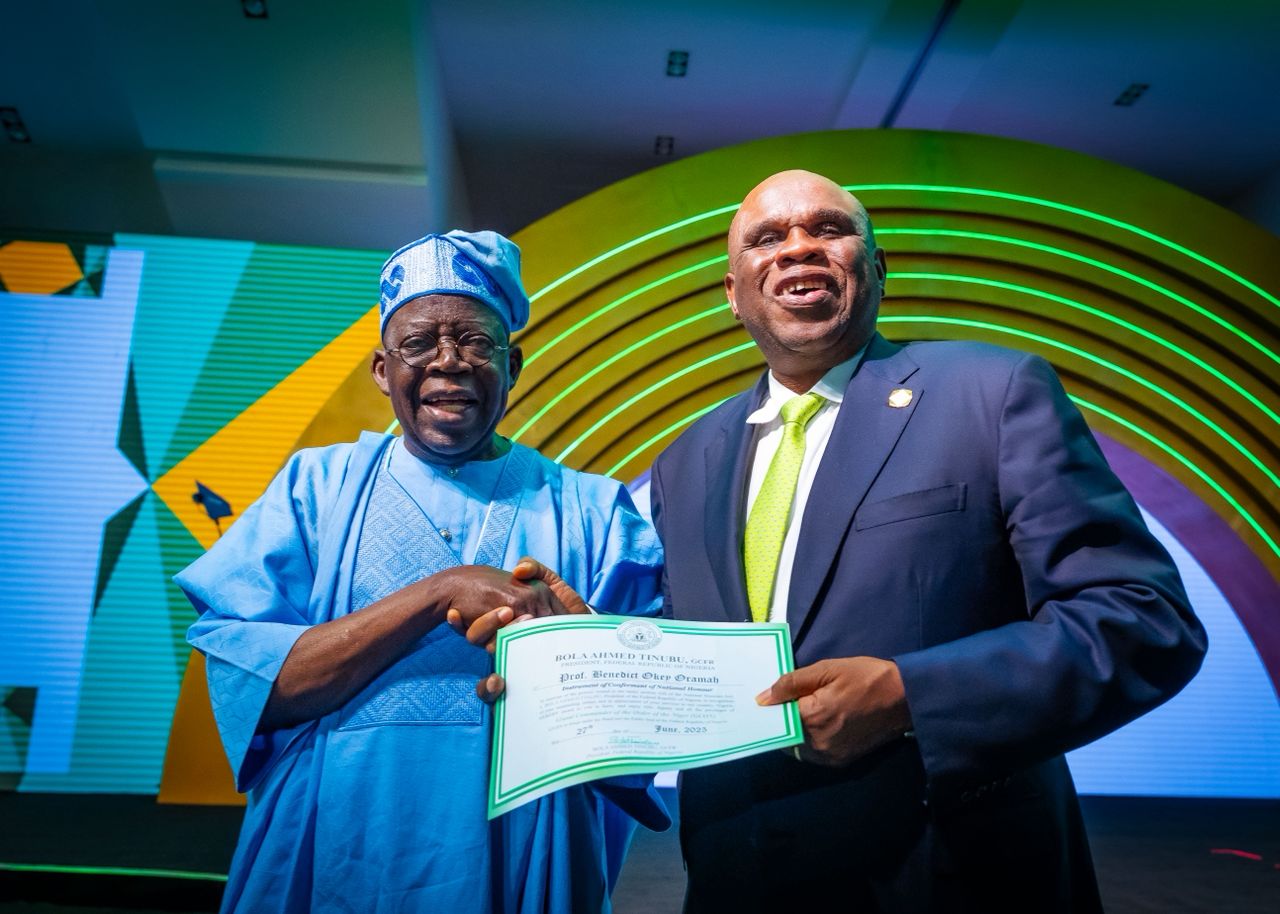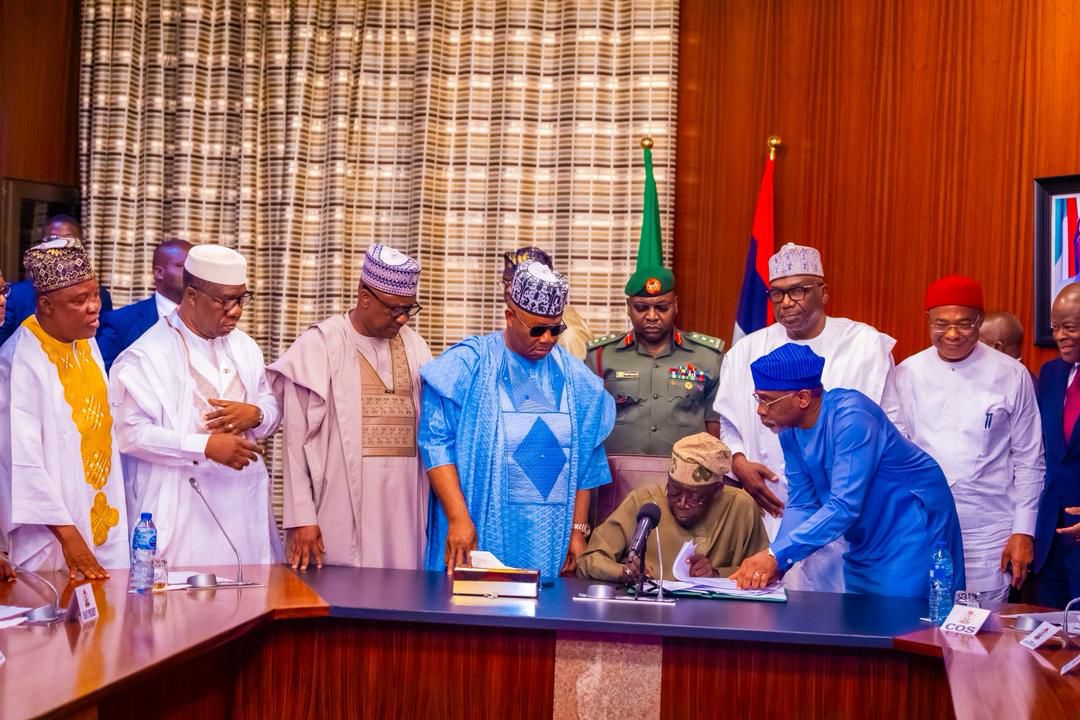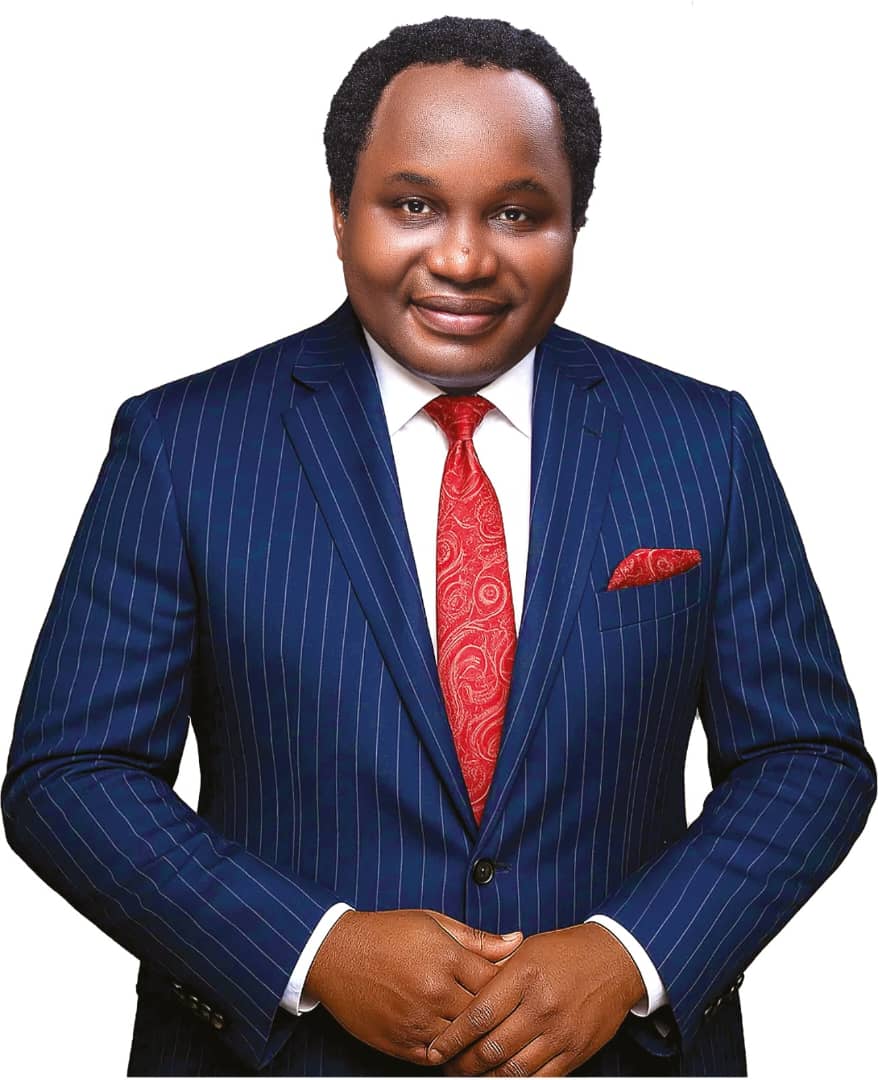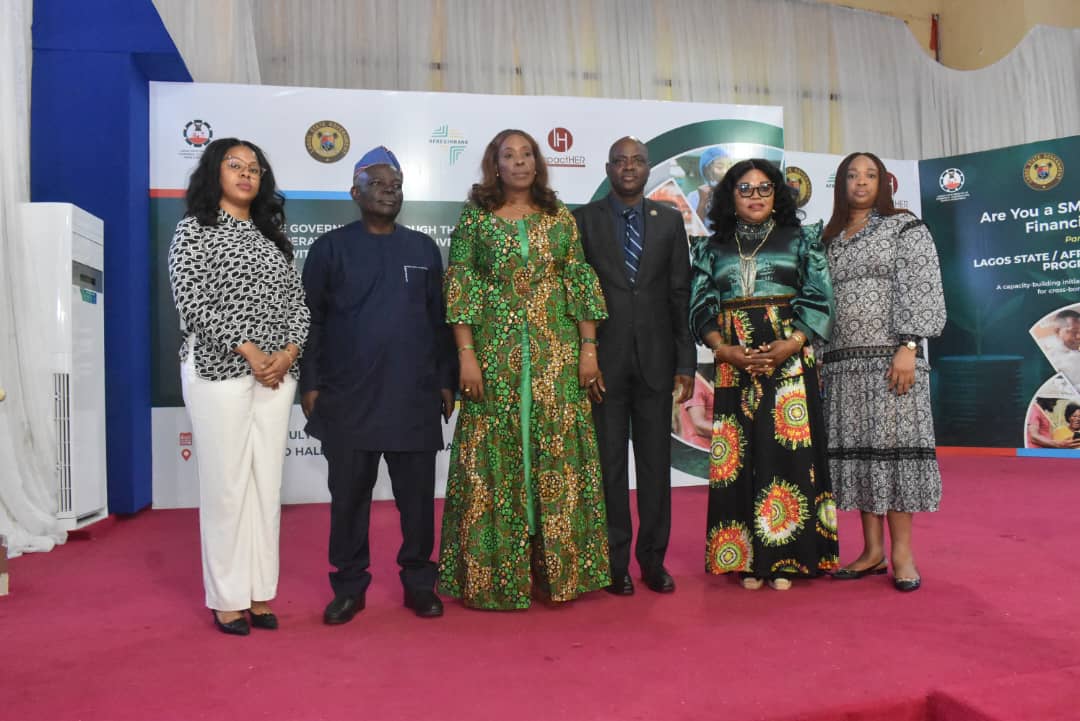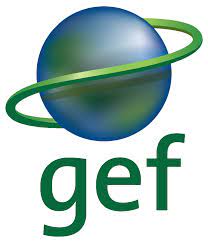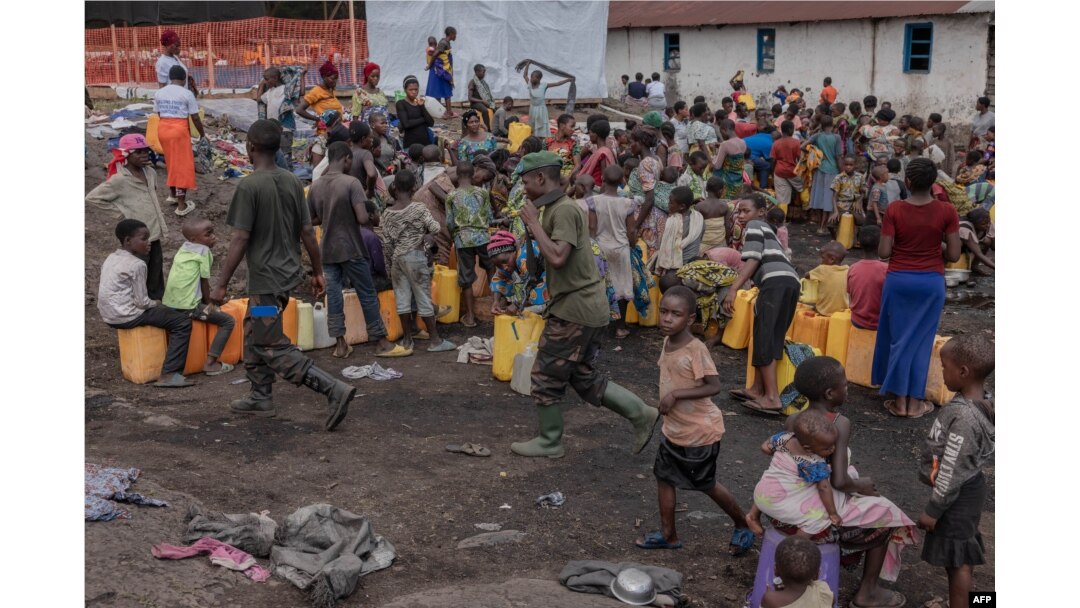Offences Whistleblowers Alleged Against Adesina At AfDB, How He Was Exonerated By Review Panel

TAIWO ADELU
The Managing Director of African Development Bank (AfDB), Adewunmi Adesina has finally been left off the hook after the three-member Independent Review Panel found him not culpable of any unethical wrongdoings.
He was earlier been found not guilty by two previous organs of the Bank – the Ethics Committee of the Board, and the Bureau of the Board of Governors, but the insistence of the United States of America that he should be tried by an independent body prompted the Board of Governors of the Bank to institute the review panel headed by Mary Robinson, who is a former President of the Republic of Ireland, a former United Nations High Commissioner for Human Rights, and the Chairperson of the Elders, a global body of wise persons concerned with the world’s wellbeing. Other members of the panel include Chief Justice of the Supreme Court of Gambia, Hassan B. Jallow; and Leonard McCarthy, a former Director of Public Prosecutions, a former Director for the Office of Serious Economic Offences, and a former Head of the Directorate of Special Operations of South Africa.
The panel agreed with all the decisions of the AfDB’s Ethics Committee of the Board, and the Bureau of the Board of Governors to exonerate the Nigerian banker and concluded through his findings that the allegations by the whsitleblowers were unfounded and lack merits.
For record purpose, however, P.M. EXPRESS presents detailed accounts of the review panel’s decisions on the 16 complaints against the former Nigerian Minister of Agriculture.
Review of Individual Complaints
The Panel has reported on the general issues and principles relating to the conduct by the Ethics Committee of its function pursuant to the Resolution of receiving, considering and reporting on the complaints made to it by the whistle-blowers and, in particular, reporting on its preliminary examination of the complaints received by it on 19 January 2020. The Panel now proceeds to consider separately the decisions of the Committee on each of the sixteen individual complaints.
The Panel, in reporting on individual cases, has adopted a policy of preserving, so far as possible, the anonymity of individual persons named in the complaints. Those persons, in many, indeed most cases, were not the object of the complaints. The Complainants themselves carefully guarded their own anonymity. More importantly, in circumstances where the Ethics Committee did not uphold any of the complaints, it would be unfair to name individuals and would run the risk of exposing innocent persons to unfair exposure and potential reputational damage.
The Panel would add that it does not necessarily follow from the dismissal of a complaint that there are not matters worthy of investigation. This has prompted the Panel to make comments in some cases. These do not detract from the Panel’s conclusion that the complaints, which were all made against the President were correctly dismissed at the stage of preliminary examination.
Allegation Number One
Non –Respect of Internal Rules and Regulations in recruitment- The Complainants charged the President of the Bank with “playing a very active role in the recruitment of all managerial positions, acting as the de facto HR Manager………. he is known to have excluded top-rated candidates from shortlists and to have cancelled shortlists drawn up by independent recruitment panels”.
The complainants declined to provide any evidence in support of this allegation. The ECBD concluded that the allegation was unfounded and should be dismissed on the grounds that the staff rules bestow authority on the President in respect of all staff, give him the power of appointment and promotion of staff and that all structures of the Bank on appointments and promotions are advisory to the President. This position of the ECBD appears to be based on an opinion of the General Legal Counsel of the Bank quoted by the complainants to wit: “the President is better placed than any ad hoc interview panel to know which prospective candidate for employment by the Bank would be best suited in assisting him/her in delivering that vision (which he has been elected to deliver) ……….. he/she can recruit the person concerned without passing through an interview panel or any other formal process”.
The Panel concurs with the finding/conclusion of the ECBD that this allegation is unfounded and should be dismissed, though not principally for the reason given by the ECBD. The Panel finds that the allegations are general: they lack specificity and are not supported by any information or evidence. Hence do not satisfy the threshold of credibility and substantiation required by the Resolution and should be dismissed.
The Panel is however concerned at the apparent position of both the General Legal Counsel and the ECBD in the matter of recruitment and promotion of staff. The Bank has rules and regulations governing recruitment, promotion and management of staff which should be respected especially by the President of the institution to maintain public trust and confidence in the institution. Undoubtedly, as the head of the institution the President will often rightly enjoy wide discretion to be exercised properly and fairly, in such matters. The Panel reiterates that no evidence of actual departure by the President from such standards has been presented by the complainants.
Allegation Number Two
Appointment of a named staff member. – The petitioners allege that this staff member was appointed to the Bank despite having been dismissed from the National Pension Commission of Nigeria following allegations of improper conduct and that the President of the Bank must have been aware of these circumstances.
It is
also alleged that this staff member was appointed as a consultant at the
request of the
President for a fee considerably higher than the applicable standard and that,
in protest, the head of Human Resources resigned.
The complainants declined to provide any evidence to support any of these allegations. The complainants declined to proffer any evidence of the alleged dismissal of the staff member or of the personal involvement of the Bank President in her recruitment as a consultant to the Bank or of any protest or resignation by the head of HR of the Bank. The complaint was unsupported by any evidence. The Committee found the allegation to be unsubstantiated and dismissed them. The conclusion of the Committee is thus reasonable and correct.
Allegation Number Three
Appointment and promotion of a named person – The complaint is that: The staff member is alleged to be the President’s brother-in-law, that at the President’s request, he was appointed a lead expert to the VP Agriculture and promoted Adviser on both occasions without competition, then to a further senior position, while the incumbent was still in place as a result of which two salaries were being paid for the same position by the Bank in violation of the Bank Recruitment Manual.
The complainants once more declined to provide any evidence in support of any of the allegations. The Committee held that the allegation was uncorroborated and should be dismissed. While it focused on an alleged familial relationship between the staff member and the President of the Bank, the existence of the alleged relationship was not supported by any evidence. Furthermore, the complainants themselves state that it is not clear if the alleged familial relationship played any part in the staff member’s recruitment and promotion. Far from supporting their allegations with evidence, the complainants seemed to be transmitting rumours/reports in respect of both the alleged familial relationship and the alleged request of the President for the recruitment of the staff member. This allegation was properly dismissed by the Committee.
Allegation Number Four
Alleged Mismanagement of a named agricultural technology Programme – The complainants allege that a grant of $40 Million was made by the Bank to a particular named beneficiary “only after the President personally used all of his political weight to defend the transaction and lift” the doubts of the Board of Directors of the Bank. It is further alleged that this was because the President was a former employee of the beneficiary and that the procurement rules were violated through direct procurement of $5.46 Million worth of pesticides when the grant contract specifically prohibited such a procurement method.
The complainants declined to provide any evidence in support of the allegations. The Committee was right in dismissing this complaint as there was no evidence of personal responsibility of the President in any wrongdoing in this programme. The Committee was justified in dismissing the allegation.
This suffices to dismiss this complaint. The Panel would add that, at its meeting of 26th March 2020 the PIAC Director disclosed to the Committee that in relation to the Agriculture cases its investigation “has uncovered elements of potential staff misconduct and potential sanctionable practices against certain companies.” However. PIAC had uncovered no evidence linking the subject of the complaints, in particular the President, under consideration to the agriculture cases. If it had, it would have reported the matter to the Committee.
Allegation Number Five
Appointments and promotions of a named person– It is alleged that the named staff member had long lasting professional ties with the President and worked for him when he was the Minister of Agriculture of Nigeria; that the staff member was appointed Director of Cabinet Office of the President in April 2017 without competition at a salary which was increased in breach of staff rules and that in 2018, despite falling into disgrace, this staff member was appointed by the President as a Director in a senior position to perform a function that does not exist in the current organizational chart; that almost no trace of actual work by her can be found and that according to the complainants information the “special duty” she was assigned by the President is to take care of his wife allegedly undergoing treatment in South Africa.
The complainants declined to provide any evidence to support any of these allegations. The Committee decided that the allegation was unsubstantiated and should be dismissed as it lacks credible evidence and was weakened by the inclusion of hearsay in it. The Panel finds this allegation to have been rightly dismissed by the Ethics Committee.
The Panel would add that the inclusion in the complaint of a far-fetched and unsupported allegation that the staff member was engaged in, the care of the President’s wife tends to weaken the case and to discredit the process.
Allegation Number Six
Direct Contracting and appointment of a named person. – The complainants allege that the staff member, allegedly a childhood friend of the President was awarded a consultancy contract in 2017 which contract had been flagged by Internal Audit as being potentially subject to a conflict of interest. They suggest that the staff member’s close association should have been disclosed during the contracting or recruitment process.
The complainants declined to provide any evidence in support of the allegations other than a photograph of the President in the company of the staff member. The Committee dismissed this allegation as unsubstantiated. They point out that there was a failure by the complainants to report appearances of conflict of interest in the appointments of the consultants as required by the provisions of Presidential Directive No. 02/2012. The Panel is satisfied that the decision of the Ethics Committee was correct. The Panel considers the complaint to be without merit.
Allegation Number Seven
Contracting of a named person – The complaint alleges that a particular individual was appointed as a consultant by the President immediately upon his retirement and was kept in office with an allegedly comfortable monthly fee and that his continued appointment as a consultant is in disregard of the presence of the Deputy Director General in Pretoria.
The Panel concurs with the Committee in dismissing the allegation on the grounds that the alleged facts do not disclose any wrong doing nor are any rules specified by the complainants as having been violated by the President for his role in the award of the contract of consultancy in question.
Allegation Number Eight
Appointment of a named individual- The complaint alleges that this person was found guilty of sexually harassing a colleague during the probation period and that the then Human Resource Director refused to confirm his contract at the end of the probation period because of his alleged misconduct, that it was the President who requested the confirmation of the individual’s contract despite this alleged sexual harassment and that the action of the President in turn contributed to the resignation in 2019 of the HR Director at the time.
The complainants provided no evidence in support of this serious allegation. This allegation, apart from being unsupported by evidence has, as it happens, been shown to be untrue. At the meeting of 26th March 2020 of the Ethics Committee, the Director of the PIAC disclosed that this allegation of sexual harassment had been investigated and found to be totally baseless and unfounded. Its discussions with the former Human Resource Director who had resigned also revealed, according to the minutes of that meeting, that she had absolutely no knowledge of the allegation of sexual harassment and that it was certainly not the reason for her resignation.
The allegations made against the named individual in this respect and also the President are totally false and unfounded, and the Committee was right in dismissing them.
Allegation Number Nine
Preferential Treatment for Nigeria and Nigerians – The complainants allege that under the current President, Nigeria was promoted to almost a fully-fledged Region of the Bank and that furthermore in the massive recruitment drive which followed his appointment, the President gave preferential treatment by recruiting a large and disproportionate number of Nigerians into the Bank.
The complainants declined to provide any evidence beyond their bare allegations. The Committee looked into this allegation and found it to be unsubstantiated and that it should be dismissed. The decision of the Committee was correct.
The Panel would further observe that the Committee found that the whistle-blowers erred in attributing the current country structure of the Bank to be the responsibility of the President. The Board of Directors played its proper statutory role as required by Article 32 of the Agreement establishing the Bank.
Allegation Number Ten
Awards Received by the President – The complainants here allege that in 2017 and 2019, the President received two major awards, one being the World Food Prize of $250,000, and the other being the Sunhak Peace Prize of $500,000. The complainants state that the Bank supported associated costs of attendance of a large number of people at the award ceremonies.
The complainants do not state clearly whether these were awards made personally to the President or as President of the Bank. They further allege that dozens of people- Bank staff, Directors, family members etc. attended these awards ceremonies at the Bank’s cost. They however failed to give any details of those who attended and the cost involved and to confirm that these costs were borne by the Bank itself.
The complainants failed to provide any evidence to support their allegation or, indeed, any evidence of alleged impropriety. The Panel concurs with the Committee in the dismissal of this complaint. There is no list of people who attended. There is no indication of the cost involved. There is no clarity as to whether those costs were undertaken by the Bank or not by the Bank. The Committee was accordingly right in finding that the allegations uncertain as they are, were not substantiated in any way and should be dismissed.
Allegation Number Eleven
Settlements for Staff Separations- The allegation here is very general that some separation packages were negotiated by the Bank and that they seem to be unnecessarily and unreasonably costly or generous.
Only one specific instance is cited, namely a person who is alleged to have received a severance package of more than $400,000 just when his contract had been renewed. But even in relation to that specific instance, there are no specific allegations of wrongdoing or impropriety, only questions are raised by the complainants about that particular package. So far as the evidence goes, it would be perfectly consistent with the sums being based on accrued benefits based on years of service.
The complainants seem to be uncertain themselves as to whether it was proper or not proper and raise questions. Whereas, they should actually have been more categoric and provided supporting evidence to establish that it was an improper arrangement. The Panel therefore agrees with the Committee in dismissing this allegation.
In addition to these considerations, the Committee itself has sufficiently explained the circumstances surrounding the departure of the staff member as well as the level of the severance package that he received and the Panel is satisfied with that and with the decision of the Committee to dismiss the allegation.
Allegation Number Twelve
Resignation of a named staff member – The complainants allege first that this staff member signed two service contracts through direct procurement amounting to $2.5 Million to the benefit of a Kenya recruitment firm in which he is alleged to have an interest and that he also exceeded his authority in that as a Director he could only sign contracts up to $100,000 whereas these two contracts amounted to $2.1 Million.
Furthermore, the complainants allege that the President of the Bank, once he became aware of these improprieties and while the staff member was under investigation, allowed him to resign from the Bank and paid him a substantial separation package.
The complainants declined to provide any evidence in support of the allegation. With regard to the first allegation, although the Committee did not refer to it in its report, the PIAC Director did inform the Committee at its meeting of 26th March 2020, that that allegation had been the subject of investigation by the PIAC and that the President of the Bank had not been found to be in any way involved with that transaction and that if he had been the matter would have been reported to the Ethics Committee given that he is an elected official. The Panel therefore concurs with the decision of the Committee to dismiss this allegation against the President.
With regard to the second issue, that is the separation of the staff member with the permission of the President and the payment of what is said to be a substantial amount of compensation, the Committee itself came to the conclusion that the President under the Rules of the Bank has no power to refuse to accept a resignation by a staff member even while they are under investigation. So, there was nothing improper with him accepting the
resignation.
With regard to the separation package, no supporting evidence was provided by the complainants as to the amount that the staff member received and whether it was proper for him to have received such a package. In any case, the Committee dismissed that allegation and rightly held that not only could the President not prevent resignation of a
staff member under investigation but that such a staff member is entitled to all his benefits under the Rules and these could not be withheld from him. The Panel therefore agrees with the conclusion of the Committee on this particular allegation.
Allegation Number Thirteen
Resignation of a named staff member – This staff member who was the Bank’s representative in one named country was alleged by the complainants to have been found guilty of serious misconduct after an audit investigation.
The complaint is that instead of being sanctioned by the Bank, the staff member was allowed to resign and receive what the complainants called a “golden parachute” as part of an amicable settlement. The complainants have not provided any particulars, and elements of this alleged golden parachute.
The Committee rightly found as in the previous case that where a staff member resigns even under investigation they are entitled to their full benefits.
Furthermore, it should be noted that the PIAC in its report to the Ethics Committee on 26th March 2020, indicated that the conduct of this staff member had been under investigation
but that there had been no evidence of any wrong doing by the President in this matter and if the PIAC had found such evidence it would have been reported to the Ethics Committee. The Panel concurs with the finding of the Ethics Committee in this case.
Allegation Number Fourteen
The appointment of a named individual to a senior position in the Bank. The complainants allege that the staff member used his position and fraudulently awarded two contracts to companies for a total amount of more than $18 Million and that the matter had been investigated, the responsibility of the staff member established but that until now no action has been taken by the Bank against him and that instead in October 2019, he was appointed by the President to a senior position.
The Committee held that this allegation is unsubstantiated and should be dismissed having regard to the briefing it received from PIAC to the effect that the staff member was not found to have been involved in any wrong doing following the outcome of the investigations on the award of the contracts.
Along the same lines, the Board of Directors of the Bank in discussions with the President of the Bank and on the advice of the General Legal Counsel, came to the conclusion that it was not legally justified to punish the staff member because he was following professional advice provided to him by the Procurement Department of the Bank in the award of the contracts.
Thus,
there was no justification for him to be sanctioned. As a result, therefore,
the award of these contracts was no impediment to his appointment to senior
positions in the Bank. As a result, the allegation of the complainants in this
matter was properly dismissed by the
Committee.
Allegation Number Fifteen
Disregard of rules concerning leave of absence of Vice Presidents or travel of management – The complainants allege here that senior management abuse the travel policy without sanction. The complainants claim that they “cannot imagine that the absences of such staff have not been authorized by the President.”
There is no evidence provided by the complainants that the President de facto or de jure has the authority to grant leave of absence for such officers and to refrain from sanctioning them for unauthorized absences. They provided no evidence, other than surmise, that the President in fact knew or authorized. For that reason, the Committee was right in dismissing the allegation against the President.
It is true that the complainants are quite specific. They provide details of two named individuals allegedly taking excessive periods of leave. While the Panel agrees with the Ethics Committee’s conclusion that the allegation against the President should be dismissed in respect of these absences, the Panel nonetheless is of the view that these alleged abuses of travel policy by senior management particularly those specified by the complainants ought to be looked into to ensure that the Bank’s rules and regulations regarding travel and leave are fully complied with. This does not affect the Panel’s view that the complaint against the President was correctly dismissed.
Allegation Number Sixteen
Political Lobbying of Heads of State- The complainants describe the President as “the unchallenged travel champion of the Bank”. They allege that he uses the opportunities of these travels to meet with Heads of State and make promises, effectively by-passing Bank management in order to secure support for his re-election to a second term and to stifle competition.
The Committee found these allegations unsubstantiated and dismissed them. The Panel however finds these allegations frivolous. It has to be recognized that the President as the elected head of the Bank has to engage in diplomatic outreach. This does not necessarily relate to hi own re-election but is necessary in order to secure the widest possible political and diplomatic support for the institution. The allegation was properly dismissed.
The Panel’s Conclusions regarding Report of Ethics Committee The Panel is satisfied that the Ethics Committee considered the complaints received by it on 19 January 2020 in a comprehensive and responsible manner and followed correct procedures. It considered them, both as complaints submitted pursuant to the Resolution and pursuant to paragraph 4 of the Whistle-blowers Policy. It appropriately took the advice of the General Counsel in identifying its duty. It conducted a preliminary examination of the complaints as it was required. It took proper note of the criteria laid down for evaluating complaints and the sufficiency of supporting evidence. It consulted PIAC and the Auditor General. It engaged in discussion and debate of each individual complaint and reached a consensus on the outcome. It applied the correct standard and prepared a report for submission to the Chairperson of the Bureau of the Board of Governors.
The Panel concurs with the Committee in its findings in respect of all the allegations against the President and finds that they were properly considered and dismissed by the Committee.
PANEL REVIEW OF PRESIDENT’S RESPONSE TO COMPLAINTS
• The Terms of Reference of the Panel as laid down by the Bureau of the Board of Governors on 4 June 2020, require it to conduct an assessment or review of the submissions made by the President of the Bank Group in the interest of due process in response to the allegations levelled against him and to have regard to the documents, emails, annexes, and letters supporting his submission. The goal described by the Bureau of the Bank’s Board of Governors is to establish the propriety or otherwise of the process undertaken by the Ethics Committee.
• On 8 April 2020, Dr. Adesina, (hereinafter “the President”), having been notified by the Committee of the complaints, submitted a detailed document to the Ethics Committee, contending that the specific facts contained in his submissions demonstrate that the complaints made in the Disclosure by the Unidentified Concerned Staff, did not meet the requirements of the Whistleblowing and Complaints Handling Policy of the Bank and that they were frivolous, and not based on objective and solid facts. Under the Terms of Reference, the Bureau of the Board of Governors directed this submission to the Panel, to assess and address in its Report to the Bureau (in the interest of due process).
• This is, therefore, a review of the submissions of the President, based on what is contained in the papers submitted by him. It is an unusual procedure. It is not a judgement, as the process does not lend itself to the reaching of any conclusions by the Panel. The Panel’s approach is to assess the President’s memorandum on the face of his submissions, bearing in mind that the Ethics Committee did not deem it necessary to review its contents in conducting the preliminary examination of the complaints, as it was required by Article 3 of the Resolution. Our opinion is based on the common sense and prudence of a reasonable person looking at the facts. We have also considered two letters by an attorney on the President’s behalf.
• In essence, the President contends that the complaints are based on bad faith, that they are not informed by a reasonable belief but by ulterior motive, that some were carelessly or illogically made and some plain dishonest, untrue, and vexatious.
• As a preliminary matter, the Panel notes that it appears that the confidentiality of the Bank’s procedures was compromised by virtue of the fact that both the allegations made by the whistleblowers (the anonymous “Group of concerned Staff Members) in their complaints and the response of the President have found their way into the public domain. This is unfortunate. Under the Whistle Blowing and Complaints Handling Policy of the Bank, public disclosure of fraud, corruption or misconduct is prohibited prior to use of the procedures set out in the policy (see Section 6). It is notable that the whistle-blowers were themselves careful to protect their anonymity. The Ethics Committee carefully maintained the confidentiality of their procedures.
• The Panel has already considered each of the sixteen complaints of the whistle-blowers in detail in the first part of this Report. At this point, it is required to consider the response of the President, which does not require it to engage in a corresponding case-by-case analysis. For ease of reading and interpretation, the Panel groups together complaints which share common elements.
• Complaint No 1: The first complaint is a general and sweeping allegation that the President regards human resource matters as his personal fiefdom, inserts himself in shortlisting processes, is actively involved in recruitment and implies that the delays, vacancies and lack of succession planning may be part of a “strategy to reward countries for the support to the President’s re-election”.
The President does not directly deal with this allegation. As noted earlier it is not supported by specific examples. The thrust of the President’s response throughout his submission, though, is that he has always acted in accordance with his powers as President of the Bank, in its best interest, that human resource management is conducted in an orderly fashion, employing standard recruitment practice and that some of the decisions complained of are taken under delegated authority.
Article 37 of the Agreement empowers the President as the chief of the staff of the Bank, responsible for the organization of its officers and staff, and requires him/her to secure the highest levels of efficiency, technical competence and integrity, in appointing officers and staff.
• Furthermore, as was determined by the Ethics Committee in its Report, Staff Rule 33.00 confers authority upon the President in respect of all staff. Staff Regulation 6.1 gives him powers of appointment and promotion of staff. The Committee expressly found, correctly, in the view of the Panel that Rule 62.01 on staff appointments and promotions clearly implies that all structures of the Bank on appointment and promotion are advisory to the President.
• Complaints Numbers 4,9,10 and 16: We here group together the President’s explanations about non-staff related matters and distinguish them from other claims regarding personnel actions. As regards a decision by Bank management, (which included a Board discussion), to honour a contract under the TAAT program (complaint number 4), and the President’s directives to pay a global supplier who delivered seed-coated technology used in the SADC region to prevent spread and infestation of Fall Army worms, he explained that he acted within the confines of the Bank’s articles of agreement, in the best interests of the Bank, and that there was nothing irregular about its handling. He did this to ward off a possible civil suit against the Bank for violating contractual obligations, and to protect its reputation, privileges, and immunities. The Panel considers the President’s account of his actions to be reasonable.
In respect of complaint number 9, it should fall within the knowledge of the Board of Directors and the Board of Governors who initiated, updated, and approved the Bank’s organizational structure when the country office was established. It is alleged that the President promoted Nigeria to a fully-fledged region, giving preferential treatment to its nationals. In response to the allegation that this was done at his behest, the President replies that these decisions were made under his predecessor’s watch. He protests that these are frivolous charges, as he could not have violated the Code of Ethics by a Board decision taken before he assumed office. On that basis, he is clearly correct.
In
respect of complaint number 10, the President goes on to declare that he
donated the
two cash awards he received for the World Food Prize and the Sunhak Peace prize
(for a lifetime of accomplishments) in 2017 and 2019 respectively, to the World
Hunger Fighters Foundation, in order to support young African Agribusiness
innovators. He explains that these facts were disclosed at the award ceremonies
which were held in Iowa and Seoul, which are mentioned in complaint Number 10,
as well as to the Bank’s Board. He says that the allegation that there was any
impropriety smacks of false accusations maliciously made. He concludes by
arguing that the attempt to portray the World Food Prize event as being
for his personal benefit is ill-founded and that Bank staff who attended it,
went there to launch properly authorized TAAT initiatives. The complainants did
not; of course have access to the President’s responses. However, their
complaints, as advanced, contain
nothing to counter these points. In response to the allegation of political
lobbying of heads of State, (number 16) ostensibly to support his candidature
in his re-election bid shortly after he gave a speech at its meeting, the
President says that it implies that he basically bribed and corrupted 16
African Heads of State. He professes that theses fanciful and baseless
allegations impugn the integrity of those persons. In all the circumstances,
the Panel accepts the responses of the President.
• Complaints Numbers 2, 3, 5, 6, 7, 8, 11, 12, 13, 14 and 15: These cover a range of human resource administration breaches, alleged preferential treatment being the most common thread. They contain accusations of questionable and rushed promotions, irregular contracting of consultants, biased confirmation of probationary periods, irregular settlements for staff separations, and disregard of rules regarding senior management travel and leave of absence. The Panel has already considered Number 8 and found it to be entirely lacking in substance. The danger with this type of accusation is that it later appears to be based on lopsided reasoning. The President says that he performed his role in the ordinary course of duties (i.e. confirming staff appraisals in each case), that he did not know the staff member in question, was entirely unaware of the alleged disqualification, and that the whistle blowers got the chronology wrong.
All of this stands uncontradicted. The Complaints appear to be no more than conjecture. There also appears to be little merit in the allegation (7) of impropriety in the President’s granting of a waiver for the short-term recruitment of a retired Director-General who led the work, to support him in his capacity as Chairman of the Multi-Lateral Development Banks.
• Complaint Numbers 2, 3, 5 and 6: These relate to senior appointments, as (i) the senior director of the Africa Investment Forum, (ii) director of Agriculture; (iii) director of the Cabinet Office; and (iv) the director of Communications. Except for (iii), the President states that all these were global recruitments handled by a renowned HR firm based in London, underpinned by a transparent, competitive process, international advertisement, rigorous short-listing, an independent panel review, objective interview processes, and effective personnel vetting. The President’s role was to give a final stamp of approval. He executed this fairly and equitably, informed by the fact that all these candidates came with excellent credentials and were highly recommended by the sitting interview panels. The President has denied a familial relationship with one candidate as alleged, denied that one was redeployed to take care of his spouse, falsely alleged to be receiving medical treatment in South Africa, and that responsibilities and decisions were attributed to him, that ignored completely the Bank’s delegation of authority matrix, and or that were just devoid of truth. In the absence of supporting material, these allegations are simply not substantiated.
• The President says that there is a standing and accepted practice in the Bank that an incoming president can bring along his or her own Chief of Staff. The Panel is unable to pass judgement on this and has to accept that this is what was conveyed to, or understood by the President, during the transition and while he was taking up his duties. Equally, he rejects the insinuation that a friendship per se amounts to a conflict of interest when it comes to recruitment.
The second leg of complaint number 6 implies that the President inserted himself in a direct contracting and sole source procurement that has given rise to suspicion on the part of the complainants. He counters however, that the decision in question was that of the relevant Vice-President. Therefore, the insinuation is based entirely on speculation. An example of his account of events that presently stands uncontested based on the papers is that an audit of the engagement of the relevant communications consultant to steer the Bank’s communications plan through the Annual Meetings in India, was conducted by the Auditor General and given a clean bill of health. This, in addition to the fact that the decision was not his, and was resorted to, to avert a crisis.
• Complaints Numbers 11, 12 and 13: There appears to be either a disconnect, a misunderstanding, or mischief in the conflicting averments about staff separations. The President contends that anyone is entitled to leave at any time and is entitled to full emoluments. This is an accepted practice under the HR rules and dispute resolution mechanisms of international organizations. As regards count 11 he points to what he regards as the utter illogic of the whistleblowers for blaming him for not acting on an investigation that was only initiated after the relevant staff member had left the Bank, the outcome of which was only reported to him (the President) 4 months ago, and was in any event found to be without substance. Similarly, he lays the blame for disinformation with the whistle blowers in what is advocated in count 12. He says this was not a case of dismissal of staff and that there was absolutely no improper payment involved. All that happened was that the relevant Vice-President departed with his entitlements (separation benefits) intact.
With regard to complaint number 13, the President convincingly states that, while he does not run country offices, he took action to protect the Bank and reverse decisions improperly arrived at. There is no counterargument on record.
• Complaints Numbers 14 and 15: The whistle-blowers describe Number 14 as a “perplexing case of impunity.” Complaint Number 15 questions the economic use of resources through unregulated travel and absences by senior staff of the Bank. On Number 14, the President explains why he took up the cudgels and intervened to stop an ongoing ostracization of a man who has long suffered through the vagaries of a flawed investigation, which was probably characterized by malicious intent. While he does not know the staff member in question and holds no brief for him, after a comprehensive review off the files, he engaged with the former head of PIAC and the General Counsel. He was unpersuaded about the merits of the case, an instinct that was borne out by the result in a Sanctions hearing against the company allegedly involved in the collusive scheme. (It is not clear what he means when he says the Bank had to pay a huge penalty.) He felt so strongly that the had twice briefed the Board about the matter, inviting them to come to his office to review the files. Suffice to say that zeal is not equal to dishonesty. As a practical matter, the Bank should provide strong support around its president to avoid this type of scenario. As regards Number 15, the President explains that he does not monitor or manage time off for staff, as that is done by HR and in the one instance the Health Department. There are private medical reasons that he respects.
On the second averment he counters that he does not sign travel authorizations of the directors and managers; and repudiates the version of the whistle-blowers, which, he says, was borne out of malice and was demonstrably false.
Concluding Observations of the Panel on the President’s Response
The Panel is mindful of the fact that “absence of evidence is not evidence of absence”. At the same time, it appears to us to be an undue burden to expect a holder of high office in an international organization, to prove a negative, in the absence of sufficient grounds. An attorney writing on behalf of the President also argues quite correctly in our view, that a distinction should be drawn between alleged institutional failure at the Bank and the conduct of the president. We have not attached any value to the Dissociation Note in our deliberations. The President has also as part of his detailed submission enclosed 18 annexes, which he believed might be relevant and necessary to make his case and assert his right to due process.
The Panel explained at the outset that it was dividing its Report into two parts. In the first part, it considered the complaints provided to the Ethics Committee by the whistle-blowers and found that they had been properly considered and dismissed by the Committee. In its second part, it considered, in the interests of due process, the responses of the President. While the Committee was not required to consider and did not, in fact consider, the President’s responses, it was in the interests of fairness and of due process that the Panel be required to do so. As it has explained, the Panel has not passed judgement on the President’s evidence. It has also borne in mind that the whistle-blowers’ complaints were wrongly publicized and that fairness required that the President be heard. It has considered the President’s submissions on their face and finds them consistent with his innocence and to be persuasive.




